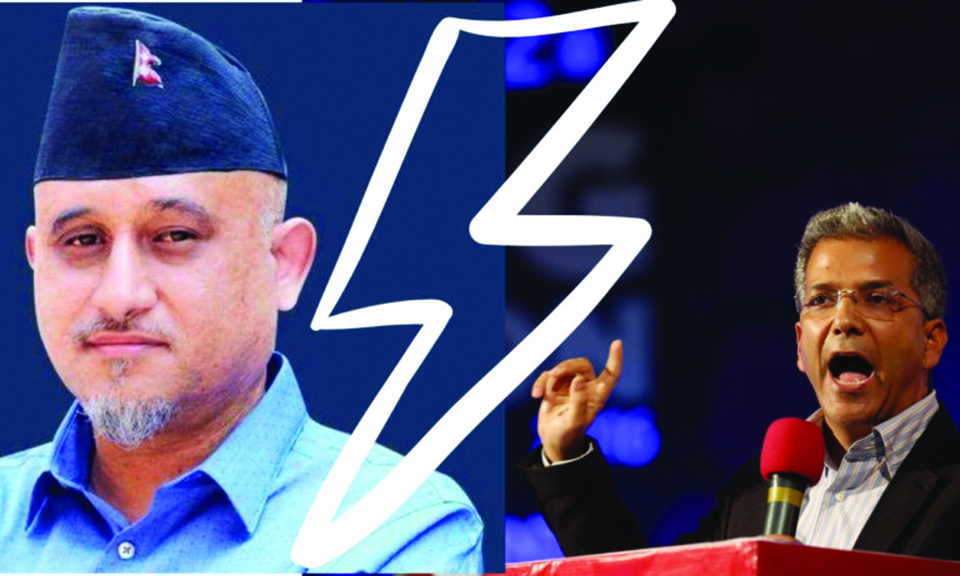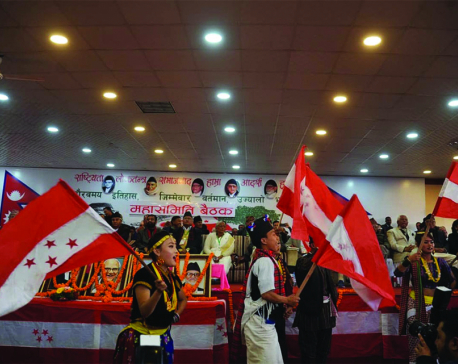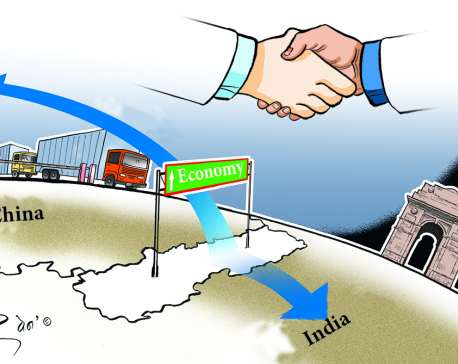
OR

One major reason why political parties are unable to lead the change is because they are not yet ready to transfer power to people
Enthusiasm and expectation abound particularly among youths when some political forces pledge to become alternative democratic forces. With the agenda to challenge traditional political parties, Bibeksheel Nepali Dal, Sajha Party, and Naya Shakti came into being with an objective of galvanizing Nepali youth into a single rope in order to combat hegemony of old political parties, initiate a new political culture of accountability, and take the country out of whirlwind of political instability and shackles of poverty.
With the same goal, Bibeksheel Nepali Dal and Sajha Party came together and merged as Bibeksheel Sajha Party prior to the federal and provincial elections of 2017. The party also succeeded in sending three of its members to Provincial Assemblies. But within less than two years of its formation, the ‘alternative political force’ of the country broke down. Bibeksheel Sajha Party is now two political entities—Bibeksheel Nepali Dal and Bibeksheel Sajha. The split is unfortunate not just for the party but also for those who looked up to the unified party with high hopes and thought of it as an organization capable of challenging the status quo and usher in new visions and culture in Nepali politics.
Bibeksheel failed to avoid the insidious trend of Nepali politics—split and merger. Nepali political parties have had an infamous history of split and merger. In the past couple of decades, Nepali Congress, Communist Party of Nepal-Unified Marxist Leninist (CPN-UML), Communist Party of Nepal (Maoist Center), Rastriya Prajatantra Party, and Madhes based parties have split and merged numerous times. They split and merged sometimes because of personal interest of their senior leaders or internal mismanagement and due to rarely disclosed external factors.
Split of Bibeksheel Sajha Party Nepal is concerning because its leaders had vowed to become different from the rest of the political parties. So why do political parties, old and new alike, are not able to stand united? Why cannot they adhere to basic principle of party politics? Does Nepal lack the culture party politics requires? And is Nepal not yet ready for an alternative political force?
Road to nowhere
The foremost reason behind erosion in political parties that we have been witnessing is the lack of commitment to political agenda and political roadmap which they themselves have developed. Second, political leaders are not clear why they are in politics. Are they in it to serve the country and people or serve themselves?
Many cite ideological differences as main cause of split. This is only partly true. It’s natural among leaders within the political parties to have differing views but this alone does not break the party if the leaders are truly committed to the nation and people. When parties and leaders have divided loyalties they certainly split. This applies in case of recent split of Bibeksheel Sajha Party as well.
There is complete mismatch between behavior and belief of political leaders in Nepal. Behavior of political parties is largely influenced by the self-interest, which is why they split. Splits happen also due to tendency of creating personal space in the party. This tendency does not allow consolidation of a political party. As a result, political parties not just fail to live up to their own promises but also fail in strengthening their institutional base.
Ruling Nepal Communist Party is an example. It rose to power after winning the two-thirds majority support. But what is it doing now? Selling dreams but not fulfilling any of its promises. Reportedly the party is already divided along erstwhile Maoist and UML factions.
The more institutionalized a party is the better it can project a higher degree of organization and thereby maintain internal stability. The concept of institutionalization in this regard comprises different components such as societal roots, the level of organization, internal coherence, and autonomy. In Nepal, all these conditions seem to be in the nascent stage.
Lust for power
Here we might argue that political parties like Nepali Congress and UML (now NCP) have relatively stronger societal roots compared to the new ones. But we cannot deny the fact that the conventional political parties have not been able to rise above vested interests of handful of individuals within the party and groups outside the party whose key concern is to remain in power. This trait has seeped into ‘alternative’ political forces as well.
Their members seem to be directed more towards establishing themselves as ‘political persons’ than consolidating organizational base. When political parties fail to have a strong organizational base they also fail to articulate clear ideology and principles. This poses danger not just for the existence of a political party but also invite problems related to internal coherence and autonomy.
What is an alternative political force actually? Is it just about becoming an alternative to the existing political parties? Are we actually ready for an alternative political force? In Nepal, an alternative political force has merely been old wine in new bottle with no clear agenda.
An alternative political force should show determination to work with the bottom-up approach and serve the people. It should in no way be about the seizure or concentration of power in few hands but rather about transferring power to the people.
One major reason why political parties—old and new alike—are unable to lead the change is because they are not yet ready to transfer power to the people and are lost in power game within and outside.
Bibeksheel Sajha Party has split into Bibeksheel Nepali Dal and Bibeksheel Sajha. Let us hope that these parties will remain committed to working for the common good of people and the country by reviving their earlier enthusiasm.
Otherwise, they might exist but they won’t be able to make any impact in national politics.
bhatta.meena@gmail.com
You May Like This

Amazon confirms two employees in Italy have contracted coronavirus
WASHINGTON, March 2: Amazon.com Inc said late on Sunday that two employees in Milan, Italy, have contracted the coronavirus and... Read More...

Path of peril
Even though politics of here and now demands repositioning of Nepali Congress, playing to the religious gallery might prove to... Read More...

Tap the opportunities
Low level of economic integration combined with untenable trade deficit is making Nepal vulnerable to external shocks ... Read More...

Just In
- World Malaria Day: Foreign returnees more susceptible to the vector-borne disease
- MoEST seeks EC’s help in identifying teachers linked to political parties
- 70 community and national forests affected by fire in Parbat till Wednesday
- NEPSE loses 3.24 points, while daily turnover inclines to Rs 2.36 billion
- Pak Embassy awards scholarships to 180 Nepali students
- President Paudel approves mobilization of army personnel for by-elections security
- Bhajang and Ilam by-elections: 69 polling stations classified as ‘highly sensitive’
- Karnali CM Kandel secures vote of confidence



















Leave A Comment